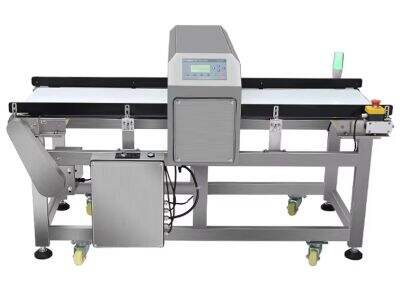Being able to feel secure that our food supply is safe to eat is an important aspect of the food industry. One method to check if the food we consume is free of harmful metal contaminants is to use metal detectors. Metal detectors have been developed for food.
Role of Metal Detectors in Food Monitoring
Metal detector is an essential equipment to the production line for food industry to prevent food from metal contamination, also is an efficient way to test rusty resisting in the food processing line. These metal contaminates may be very tiny and often hard to see however, the metal detectors are important in maintaining the safety of our food.
Metal Detector Sensitivity
How to Determine and Calculate If a metal detector is under-performing in one or more applications, the first step is figuring out exactly where the problem area lies.
Sensitivity is the ability of a metal detector to detect small particles of metal from your food products. Certifying Food metal detector sensitivity is the process of running a specific size test sample through the metal detector to see weather or not it will potentially detect the test sample size of metal contaminants. This assists food producers to ensure that their metal detectors are capable of detecting any metal contaminants existing in the product.
How Important Is Sensitivity For A Metal Detector And Its Calobration?
Sensitivity of the metal detectors can be kept by correct adjusting. Calibration is performed by fine-turning the settings of the Food metal detector to make it capable of recognizing metal materials as contaminants in food products. Without adequate calibration, a metal detector could not detect small metal pieces, which would put consumers at risk.
Typical Problems When Trying to Keep Metal Detectors Sensitive
There are a number of typical issues that food producers can experience with respect to the sensitivity of their metal detection systems. These problems involve environmental conditions such as temperature and humidity, which contribute to the variation among the performances of the metal detector. Ongoing maintenance & Cal ibrations are essential for combating these obstacles to maintain the Food metal detector operating at MAX sensitivity.
Metal Detector Sensitivity in Food Safety: How to Get it Right
Food manufacturers can accomplish high levels of metal detector sensitivity by gaining an insight into the role of metal detectors in food inspection, measurement and assessment of metal detector sensitivity, maintenance of calibration, and addressing common challenges of achieving metal detector sensitivity as part of food safety. This is to make sure that the food we consume is safe and not contaminated by any dangerous metals.

















































